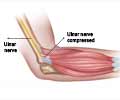Vitamin B12 plays a vital role in our health. Learn about its importance, sources, deficiency symptoms, and effective ways to keep levels optimal.

- Vitamin B12 is crucial for producing red blood cells, neurons, and DNA
- Deficiency symptoms range from numbness to cognitive issues
- Early detection and treatment can prevent serious health complications
Vitamin B12 deficiency can be sneaky and harmful
Go to source).
Why is Vitamin B12 Important?
The human body requires vitamin B12 to produce red blood cells, neurons, and DNA, among other things. The average adult needs 2.4 micrograms each day. B12, like most vitamins, cannot be synthesized by the body. It must instead be obtained through meals or supplements. Therein lays the issue: some people do not consume enough vitamin B12 to meet their requirements, while others cannot absorb enough no matter how much they ingest. As a result, vitamin B12 insufficiency is rather frequent, particularly among the elderly.Are You in Danger of Vitamin B12 Deficiency?
Vitamin B12 insufficiency can be caused by a variety of factors. Surprisingly, two of these are common health-improvement practices: a vegetarian diet and weight-loss surgery.Plants do not produce vitamin B12. Meat, eggs, poultry, dairy products, and other animal products are the only foods that contain it. Strict vegetarians and vegans are at significant risk of vitamin B12 deficiency if they do not consume fortified grains or take a vitamin supplement (2✔ ✔Trusted Source
Vitamin B12 in health and disease
Go to source). Weight-loss surgery patients are also more likely to be vitamin B12 deficient because the procedure interferes with the body's capacity to obtain vitamin B12 from diet.
B12 problems can be caused by conditions that interfere with nutritional absorption, such as celiac or Crohns disease. The usage of routinely recommended heartburn medications, which inhibit acid production in the stomach (acid is required to absorb vitamin B12), can also be harmful. Because of the decrease in stomach acid production that happens with aging, the ailment is more likely to occur in elderly adults.
Symptoms of Vitamin B12 Deficiency
Vitamin B12 insufficiency can be gradual in onset, leading symptoms to emerge gradually and worsen with time. It can also strike unexpectedly. Given the variety of symptoms that a vitamin B12 shortage can induce, the illness is easily neglected or misdiagnosed. Symptoms of vitamin B12 insufficiency may include (3✔ ✔Trusted SourceVitamin B12 Deficiency
Go to source):
- unusual sensations, numbness, or tingling in the hands, legs, or feet
- difficulties walking (stumbling, balance issues)
- anemia
- trouble thinking and reasoning (cognitive issues) or memory loss due to a large, irritated tongue
- exhaustion weariness
If you are a strict vegetarian, have undergone weight-loss surgery, or have a condition that interferes with food absorption, consult your doctor about getting your B12 level evaluated. Early detection and treatment are critical. If left untreated, the deficit can lead to serious neurological issues and blood illnesses.
Increasing Your B12 Levels
A severe vitamin B12 deficiency can be treated in two ways: monthly vitamin B12 shots or daily high-dose B12 tablets. A normal multivitamin can treat a mild B12 deficiency (4✔ ✔Trusted SourceVitamin B12 Deficiency: Recognition and Management
Go to source).
A vitamin B12 deficiency can be avoided in many people. If you are a devout vegetarian or vegan, it is critical to consume vitamin B12-fortified breads, cereals, or other grains daily, or to take a daily supplement. A standard multivitamin contains 6 micrograms, which is more than enough to meet the average body's daily requirement of vitamin B12.
References:
- Vitamin B12 deficiency can be sneaky and harmful - (https://www.health.harvard.edu/blog/vitamin-b12-deficiency-can-be-sneaky-harmful-201301105780)
- Vitamin B12 in health and disease - (https://pubmed.ncbi.nlm.nih.gov/22254022/)
- Vitamin B12 Deficiency - (https://www.ncbi.nlm.nih.gov/books/NBK441923/)
- Vitamin B12 Deficiency: Recognition and Management - (https://pubmed.ncbi.nlm.nih.gov/28925645/)
Source-Medindia















